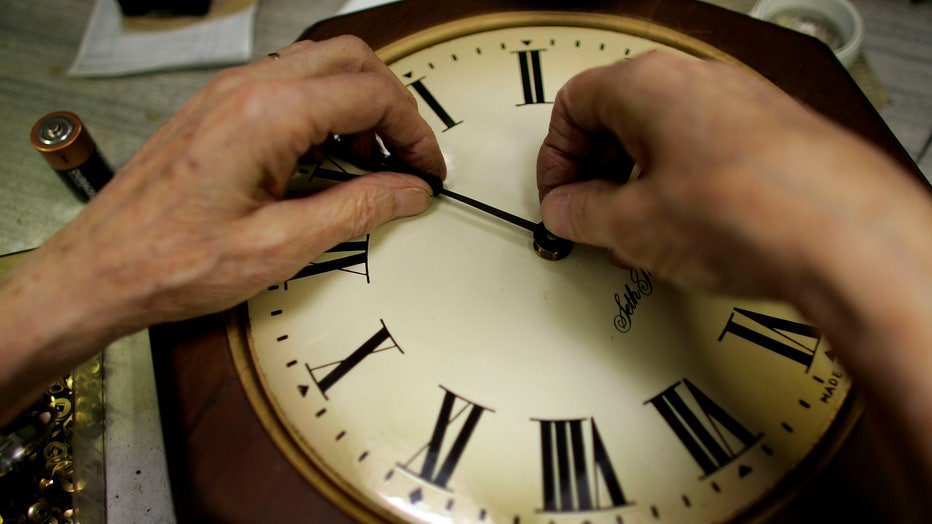Texas House votes to permanently stay on daylight saving time. But Congress won’t allow it — yet.
AUSTIN, Texas - The Texas House has taken sides in one of America’s most polarizing debates — whether to continue changing clocks twice a year, ditch daylight saving time altogether or stick with later daylight permanently.
The representatives’ overwhelming verdict: Stay on daylight saving time moving forward.
The chamber voted 136-5 on Tuesday to give initial approval to House Bill 1422, from Rep. Will Metcalf, R-Conroe.
"The antiquated practice of ‘springing forward’ and ‘falling back’ — changing our clocks twice a year — is frustrating to many Texans," Metcalf said ahead of the vote. "I believe we should stick to a time without switching twice a year."

PLANTATION, FL - MARCH 06: Howard Brown repairs a clock at Brown?s Old Time Clock Shop March 6, 2007 in Plantation, Florida. This year day light savings time happens three weeks early and some people fear that it could cause some computer and gadget
Rep. Terry Canales, D-Edinburg, asked if the House could vote on who likes which variation of time before voting on the bill, which drew a couple of chuckles. That vote did not occur.
The idea is far from becoming reality. Once the bill gets a final House vote, it still has to clear the Senate. And even if signed to law by Gov. Greg Abbott, the measure would still require an OK from Congress.
Federal law lets states exempt themselves from observing daylight saving time — meaning they remain on standard time year-round — if they pass state laws doing so. But states do not have the power to permanently observe daylight saving time, like the Texas House wants, according to the U.S. Department of Transportation.
That’s the federal agency that oversees the country’s time zones and uniform observance of daylight saving time.
Hawaii, American Samoa, Guam, Northern Mariana Islands, Puerto Rico, the Virgin Islands and "most of Arizona" do not observe daylight saving time, according to the transportation department.
If HB 1422 were to become law, Texas would join 19 states that have enacted or passed measures for year-round observation of daylight saving time, according to a tally from research group National Conference of State Legislatures.
Still, the laws cannot go into effect — as HB 1422 notes — unless Congress enacts a law granting states the authority to observe daylight saving time all the time. Republican U.S. Sen. Marco Rubio of Florida introduced a federal bill last month that seeks to do just that.
"This ritual of changing time twice a year is stupid," Rubio said in a statement last month. "Locking the clock has overwhelming bipartisan and popular support."
HB 1422 is among at least 18 bills that have been filed this session concerning Texas’ time and daylight saving. Some of the proposals are similar to HB 1422; others would let voters decide the time of day through a referendum.
Disclosure: National Conference of State Legislatures has been a financial supporter of The Texas Tribune, a nonprofit, nonpartisan news organization that is funded in part by donations from members, foundations and corporate sponsors. Financial supporters play no role in the Tribune’s journalism. Find a complete list of them here.
This article first appeared in The Texas Tribune. READ MORE: Texas House wants to permanently stay on daylight saving time

